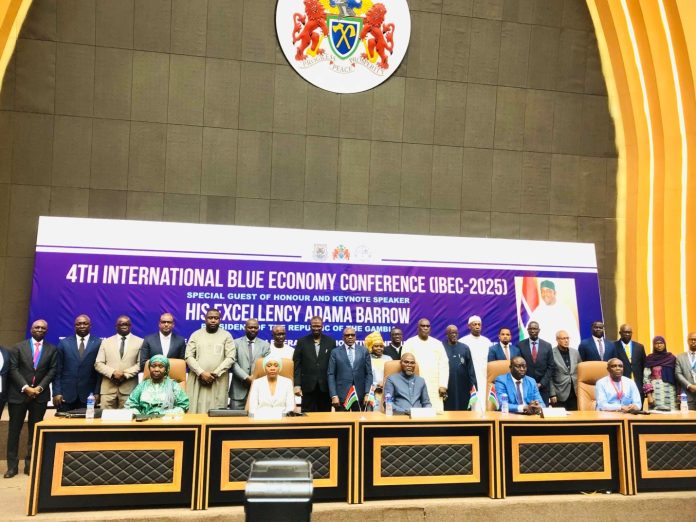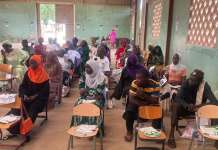By Mariama Marong
At the 4th Blue Economic Conference, Fatou Bensouda, former Prosecutor of the International Criminal Court (ICC) and The Gambia’s High Commissioner to the United Kingdom, highlighted the economic challenges facing The Gambia and many African nations, particularly irregular migration and economic hardship among young people. Bensouda attributed these issues to weak enforcement of fisheries agreements and the mismanagement of ocean resources, which have led to the depletion of fishing stocks.
Speaking at the conference, Bensouda emphasized the significance of fisheries in West Africa, where over seven million people rely on the sector for food and employment. However, she warned that lopsided fisheries agreements, coupled with poor legal frameworks and enforcement, are contributing to the decline of marine resources.
“The consequence of these developments is that it is causing economic hardship and thus fuelling irregular migration of mostly young people to Europe,” Bensouda stated.
Bensouda argued that the Blue Justice initiative presents a critical opportunity to address these challenges. She expressed support for a vision in The Gambia focused on securing fairer fisheries deals, investing in surveillance and monitoring systems, and implementing policies to better protect and preserve marine ecosystems.
Focusing on illegal fishing activities in Gambian waters, Bensouda shared an example of successful action by the Gambian Navy. In March 2023, a coordinated sting operation, supported by a multilateral partner, resulted in the capture of eight industrial trawlers engaged in illegal activities, including fishing in protected waters, using undersized mesh sizes, and misreporting catches.
“The importance of these issues to local fishing communities cannot be overstated,” Bensouda noted. “Their very livelihoods depend on the oceans and its resources, and they must be better managed for the benefit of all.”
Bensouda expressed concern over the financial losses caused by illegal fishing, calling the situation “alarming and deeply disheartening.” She cited a recent Amnesty International report, which estimated that The Gambia, alongside Senegal, Mauritania, Guinea-Bissau, and Sierra Leone, collectively lose more than $2 billion annually due to illegal fishing activities.
From The Gambia’s perspective, Bensouda emphasized the urgent need for regional collaboration within the framework of the Blue Justice Initiative to protect the blue economy. “Local fishing communities are counting on not only The Gambia but also the international community to address the enforcement gaps and guide affected countries toward sustainability,” she said.
She also underscored the importance of cross-border and inter-agency collaboration in fisheries law enforcement. Using technology, such as the Blue Justice Tracking Centre, would play a pivotal role in tracking the movement of fishing vessels and preventing illegal fishing operations, she added.
“We have much hope for our efforts,” Bensouda concluded. “The Gambia is grateful for the meaningful partnership with concerned authorities, and together, we can make a significant impact on the future of our oceans and the communities who rely on them.”




















